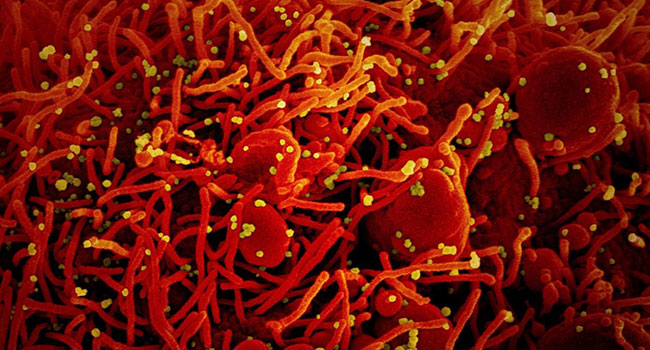Scientists Develop New Technology to Discern the Cause and Types of Blood Clots
May 10, 2020 by Kamran AhmedScientists have developed a new, groundbreaking technology called Intelligent Platelet Aggregate Classifier (iPAC) that helps identify the many different types of blood clots and their causes, according to a study published in eLife.
Developed by Yuqi Zhou, a PhD student at the Department of Chemistry, University of Tokyo, Japan, and her colleagues, the tool uses high-throughput imaging flow cytometry and a convolutional neural network to detect the cause of a blood clot. For instance, doctors can use this technology to find out whether anti-clotting medicines, such as aspirin, can be used to treat a patient who has just experienced a stroke or heart attack.
 Image source: National Institute of Allergy and Infectious Diseases via WAPO
Image source: National Institute of Allergy and Infectious Diseases via WAPOWhile different molecules are responsible for causing various types of blood clots, they are almost impossible to differentiate under the microscope because they look very similar. Zhou and her team developed a unique method to distinguish the various blood clot types, based on their causes.
First, they took blood samples from healthy people and treated them with different clotting factors. Second, they used high-throughput imaging flow cytometry to record the images of the many different blood clot types. Next, they used machine learning to program a computer to spot the variations in the shapes of the blood clot types.
After experimenting with the new technology on twenty-five thousand blood clot images, the scientists saw that the computer successfully spotted the differences between most types of blood clots. They also tested the iPAC on various types of clots found in human blood, with successful results.
The new tool can help scientists study the makeup of different blood clots types that were impossible to recognize with existing tools. Since recent reports indicate that COVID-19 causes blood clots as well, this technology could be used to get insights into these clots, too, said Zhou. Doctors and researchers can use the results of iPAC to determine targeted treatments for patients.
Next »
Signup to be notified of clinical trials near you that match your condition
Signup and be matched to trials near youThis free service will notify you of current and future clinical trial matches.
